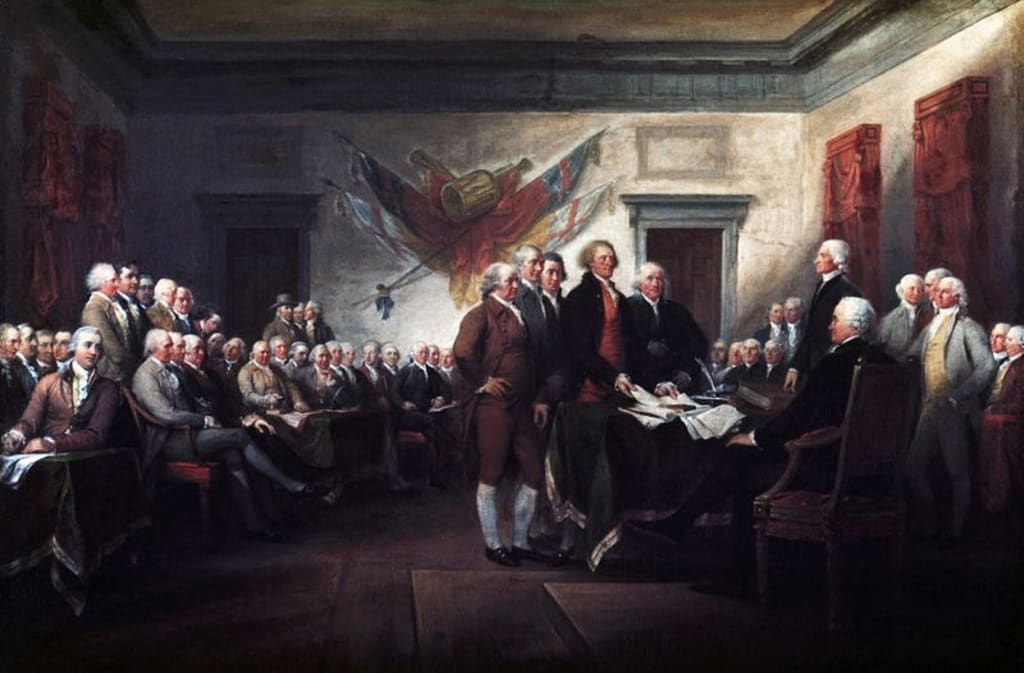A Beginner's Defense of The West
What Western Civilization Has Gotten Right

If you were to watch the news at any given moment, it would be easy to assume that the world was falling apart. From the wars abroad to the domestic political division, it is not easy to find hope.
I found myself struck with awe and gratitude while coming across the book Enlightenment Now by Steven Pinker. The author went to extreme lengths to show how the values of the Enlightenment era have brought about global progress and prosperity.
All of this is nothing short of miraculous. But a miracle it was not. Humanity has beaten back the entropy that is set against us in nature. We have discovered philosophies that increase the likelihood of well-being while reducing the likelihood of suffering. We should be nothing short of humbled by the people who have brought us this far. We live in a time and place that no one in history would have believed possible. Some gratitude for how far we have come is definitely in order.
Unfortunately, our universities and public leaders appear to be hell-bent on ignorance, only pointing out the evils that Westerners have done. In a so-called effort to eradicate inequality, proposals for destroying the bulwark of our prosperity are being posited. It is now taboo to stand up for the West.
What do I mean by the West? The West is the culture that posited that an individual was an end, not a means. That no tyrant, monarch, priest, bully, or group had the right to infringe on the life of another. This philosophy separated the power of the church from the law of the state. It—albeit delayed—stood against slavery upon its realization that it was in contradiction with its own ideals. The Americans waged the most deadly war in its history to stop it. Great Britain warred and guarded the seas to abolish it worldwide, all while taking on the financial burden that was needed to help the business owners begin to pay its entire workforce (it is worth noting that scholars have established that the benefits the British received from the slave trade did not outweigh the cost it paid to make amends and abolish it).
The acknowledgment of individual rights led to a government that protected private property, thus preventing any thug that came along to leach onto someone else's labor. Such rights included the right to the fruits of one's labor, leading to free trade, capitalism. The results are above.
There are people who say that every society has its own good and its own evil. They ask questions like, "Who are we to say that we are any better?" They condemn Western people for being patriotic or showing a semblance of national pride, but praise outsiders for doing the same. It may be that such people who espouse cultural and moral relativism are simply being generous, attempting to constrain bigotry, or standing up for the little guy. However, the proof is in the pudding: If a culture believes people have the right to squander an individual in the name of "the greater good," it suffers; if a culture honors and protects individuals from the evils thereof, it flourishes.
Any person who rejects these rights is not a moral person. If someone espouses the blows of a bully and mocks the bandages of the victim; if they praise the vandalizer and shame the business owner for noticing; if they wish to make it legal to steal from those who work in order to give to those who don't; if they claim their society is a modern form of slavery while praising the virtue of countries that still hold slaves; it is they who are evil. Unless people are willing to make the distinction between that which is wrong and that which is right, it is the former that will gain traction.
The Enlightenment brought humanity into a new era of freedom and abundance. Whenever a society adopts these principles and stands by them, its people thrive. If you live in the West, you have a right to be proud of our progress and our philosophy. If you hear someone critiquing our values without giving any credence to our virtues, push back against it with inquiry and rational argument. Perhaps they simply do not know how far we have come. Perhaps they do. If we all do nothing, the vacuum of our silence will be filled by someone else.
"The spread of evil is the symptom of a vacuum. Whenever evil wins, it is only by default: by the moral failure of those who evade the fact that there can be no compromise on basic principles."
—Ayn Rand
—GCF, December 28, 2022
About the Creator
Geno C. Foral
Husband of a beautiful wife. Father of a magical daughter. Student of clinical psychology.
Enjoyed the story? Support the Creator.
Subscribe for free to receive all their stories in your feed. You could also pledge your support or give them a one-off tip, letting them know you appreciate their work.






Comments
There are no comments for this story
Be the first to respond and start the conversation.